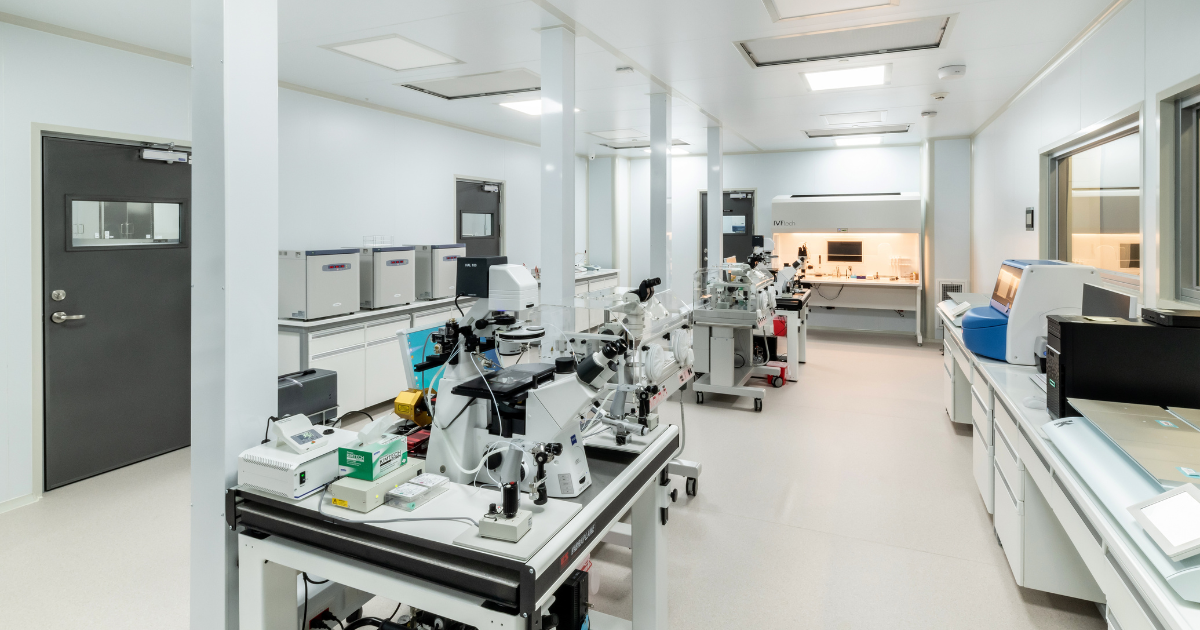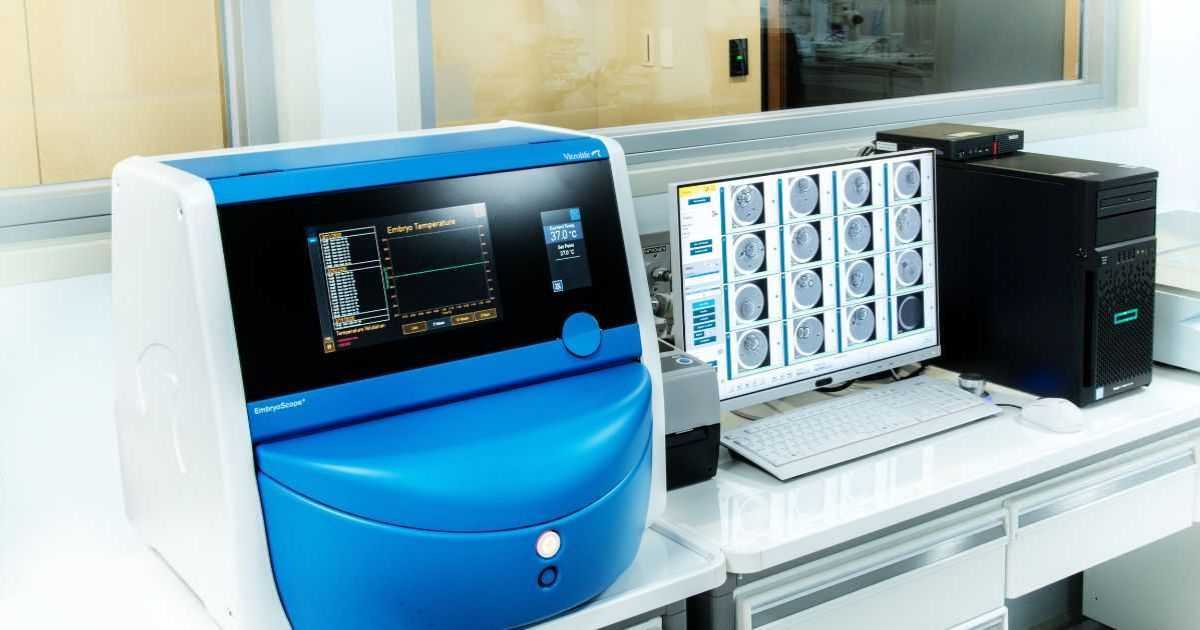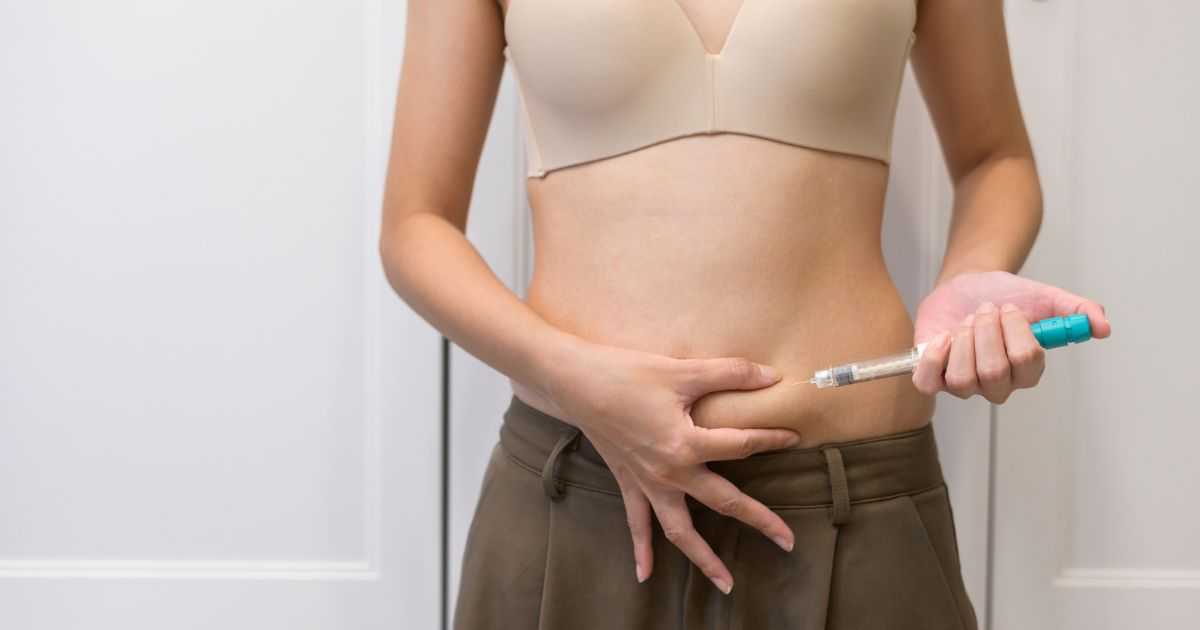Trying to conceive but facing challenges? In vitro fertilization (IVF) could be the solution. What is IVF? Who qualifies for treatment? What are the success rates? At TFC, we offer expert fertility care and the latest IVF treatments to help you achieve your dream of parenthood. Learn everything you need to know about IVF here!
What Is In Vitro Fertilization (IVF)? Explore 4 Advanced IVF Techniques!
In vitro fertilization (IVF), commonly known as the "test-tube baby" technique, is a cutting-edge fertility treatment that helps couples overcome infertility. This process involves retrieving eggs and sperm, fertilizing them in a controlled laboratory environment, and then transferring the healthiest embryos into the uterus to achieve pregnancy. As one of the most effective infertility treatments, IVF has helped countless couples realize their dream of parenthood.
IVF technology has evolved over the years into four specialized techniques, each designed to address different fertility needs. Here’s a quick overview of these advanced IVF methods. Want to dive deeper?
Click to explore detailed insights and find the best option for your fertility journey!

Traditional In Vitro Fertilization
In this conventional IVF method, a set number of eggs and sperm are placed together in a controlled culture dish, allowing fertilization to occur naturally. The sperm compete to penetrate the egg, mimicking the natural conception process outside the body.
Intracytoplasmic Sperm Injection, ICSI
Ideal for cases with low sperm count or poor motility, ICSI involves a highly precise technique where an embryologist selects the healthiest sperm and directly injects it into the egg’s cytoplasm. This advanced method significantly improves fertilization success for couples facing male infertility challenges.
Preimplantation Genetic Testing (PGT-A / PGS)
PGT-A, formerly known as PGS, screens embryos for chromosomal abnormalities before transfer, helping couples with recurrent miscarriages or failed IVF cycles improve success rates. By selecting only healthy embryos, this technique reduces miscarriage risks and increases pregnancy rates.
Time-Lapse Embryo Incubator
This advanced imaging system captures continuous embryo development every 10 minutes by a built-in microscope and camera. Without disrupting the culture environment, it ensures optimal conditions for selection. With improved embryo evaluation, the Time-Lapse Incubator boosts IVF success rates to 60-70%, enhancing pregnancy outcomes.

Who Is Suitable for IVF? Key Differences Between IUI and IVF
According to Taiwan’s Assisted Reproduction Act, only legally married heterosexual couples are eligible for IVF. However, not all couples struggling with conception require IVF. If pregnancy hasn’t occurred after six months of trying without contraception, visiting a fertility clinic for evaluation is recommended. A doctor can then determine the most suitable treatment plan based on test results.
Who Should Consider IVF Treatment?
Based on clinical experience, IVF is recommended for:
-
Women over 35 or with low ovarian reserve
-
Women with blocked or damaged fallopian tubes
-
Women with endometriosis
-
Those with a history of recurrent miscarriages
-
Men with low sperm count or poor sperm quality
-
Individuals with a family history of genetic or chromosomal disorders
-
Couples who have failed IUI three or more times
-
Couples diagnosed with unexplained infertility
How Long Does the IVF Process Take? What’s the Procedure Like?
After learning about IVF, you might wonder: how long does it take, and how should you adjust your lifestyle during treatment?
The IVF timeline varies based on individual health factors, but on average, it takes 3 to 6 months. The process includes:
-
Pre-treatment preparation
-
Ovarian stimulation
-
Follicle monitoring
-
Egg retrieval
-
Embryo transfer
-
Pregnancy follow-up
1. Pre-treatment Preparation
During the pre-treatment phase, your doctor will conduct a thorough evaluation to tailor your IVF treatment plan, including:
-
Physical examination
-
Hormone tests: Anti-Müllerian Hormone (AMH), Estrogen, Follicle Stimulating Hormone (FSH), Luteinizing Hormone (LH), Progesterone, Thyroid Stimulating Hormone (TSH), Prolactin, and Estradiol (E2)
-
Hysteroscopy to assess the uterine cavity
-
Fallopian tube imaging to check for blockages
-
Sperm analysis for male fertility assessment
2.Ovarian Stimulation
On the 2nd to 3rd day of your menstrual cycle, a transvaginal ultrasound will be performed to assess the antral follicle count (AFC), and blood tests will measure hormone levels. Following this, ovulation medication will be administered to stimulate the ovaries and promote follicle maturation, preparing them for ovulation.

3. Follicle Monitoring
During this stage, continuous monitoring of hormone levels and follicle development will take place. Based on test results, your doctor will adjust the medication to optimize conditions for egg retrieval.
4. Egg Retrieval Surgery
Once the eggs are mature and the quantity is sufficient, the doctor will determine the optimal timing for egg retrieval. About 36 hours before the procedure, an ovulation trigger injection will be given. On the day of egg retrieval, a sperm sample from the male partner will typically be required, either at the clinic or at home.
5. Embryo Transfer
In the laboratory, the technician will combine the best-quality sperm and eggs in a culture dish for in vitro fertilization. After the embryos are cultured, the best embryos will be selected and transferred into the woman's uterus for implantation.
6. Pregnancy Follow-Up
After embryo transfer, the patient will be prescribed estrogen and progesterone to help the embryo implant successfully, thus increasing the IVF success rate. Pregnancy testing can be done 14 days after the transfer. The common method used at the clinic is to measure the levels of HCG in the woman’s blood to confirm pregnancy. Some couples may be eager to test at home before the follow-up appointment using a pregnancy test kit. However, using over-the-counter test kits in the early stages of IVF can sometimes lead to inaccurate results as the test quality varies. It is recommended to visit the clinic for a blood test because it provides a more accurate diagnosis of pregnancy.

What is Progesterone ? Why is Progesterone Essential for IVF?
Progesterone is a key hormone in the IVF process. But what exactly is it, and why is it so important for IVF success?
Progesterone, also called the luteal hormone or pregnancy hormone, is produced by the ovaries and helps stabilize the uterine lining. This creates the ideal environment for embryo growth. Progesterone levels naturally fluctuate according to the menstrual cycle, menopause, and pregnancy.

Progesterone Imbalance: A Common Endocrine Disorder
Progesterone imbalance is a common endocrine disorder that can lead to various issues, including irregular periods, headaches, PMS, and infertility. Maintaining healthy progesterone levels is crucial for overall hormonal balance and reproductive health.
Why Do Women Trying to Conceive Need Progesterone?
For women trying to conceive, adequate progesterone is essential for stabilizing the uterine lining, which increases the chances of successful embryo implantation. It also helps prevent early pregnancy bleeding and reduces the risk of miscarriage due to low progesterone levels.
Women over 35 or those with conditions like ovulation abnormalities, polycystic ovary syndrome (PCOS), or hypothyroidism are at a higher risk for progesterone deficiency. In IVF treatment, progesterone supplementation is crucial for stabilizing the endometrium and supporting a healthy pregnancy.
Is the Success Rate of IVF High?
The success of IVF depends on several factors, including age, egg and sperm quality, embryo condition, uterine health, and medical technology. According to the Ministry of Health and Welfare, the IVF pregnancy success rates are:
-
Women under 35: 44%
-
Women aged 35-37: 39%
-
Women aged 38-40: 30.9%
-
Women aged 41-42: 18.7%
Why Does IVF Fail?
-
Age: Egg and sperm quality decline with age, reducing fertility.
-
Chromosomal Abnormalities: Over 50% of early pregnancy losses are caused by embryo chromosomal abnormalities.
-
Uterine Conditions: Issues like endometriosis, uterine polyps, or an unsuitable uterine lining can hinder embryo implantation.
-
Autoimmune Disorders: The immune system may mistakenly attack embryos, leading to implantation failure.

What Should You Do After an IVF Failure?
Facing IVF failure can be distressing, but there are still opportunities. Here are five key adjustments to enhance chances:
- Rest & Relaxation: Stress can disrupt ovulation and fertility. Stay positive to support reproductive health.
- Regular Sleep Schedule: Sleep early and avoid staying up late to regulate hormone balance.
- Balanced Diet: A Mediterranean diet for women and zinc/antioxidant-rich foods for men can improve fertility.
- Moderate Exercise: Enhances metabolism, ovulation, sperm quality, and vitamin D levels.
- Traditional Chinese Medicine (TCM): Acupuncture and cupping therapy may improve reproductive health and embryo implantation rates.

IVF Side Effects & Risks: Common post-implantation complications and how to manage them.
IVF is a promising fertility solution, but side effects and risks exist. Understanding these risks helps couples better navigate the journey toward pregnancy.
1. Ectopic Pregnancy
Incidence Rate: ~1% (1 in 100 pregnancies)
Cause: The fertilized egg implants outside the uterine cavity, typically in the fallopian tube (95% of cases), but may also occur in the ovary, abdomen, cesarean scar, or cervix.
Symptoms:
- Severe pelvic or abdominal pain
- Delayed menstruation with irregular vaginal bleeding
- Low blood pressure, dizziness
Risk: Ectopic pregnancy is life-threatening and requires immediate medical intervention.
2. Multiple Pregnancy
Cause: IVF often involves transferring multiple embryos to improve success rates, increasing the likelihood of twins or more.
Risks:
- Higher chances of preterm birth, low birth weight, premature rupture of membranes
- Increased risk of maternal complications such as coagulopathy, infections, sepsis, and even mortality
Recommendation: Regular prenatal check-ups are essential to monitor the health of both mother and babies.
3. Ovarian Hyper Stimulation Syndrome (OHSS)
High-Risk Groups: Women who are younger, have a lower BMI, polycystic ovary syndrome (PCOS), or develop more than 15 follicles during stimulation.
Cause: Overreaction to ovulation-stimulating medications.
Symptoms:
- Abdominal pain, fluid buildup in the abdomen (ascites)
- Excessive thirst, reduced urination
- Nausea, vomiting, difficulty breathing
Severity: Most cases are mild and manageable with medical care. Severe cases require immediate medical attention.

4. Ovulation Trigger Injection Side Effects
Function: The trigger injection induces ovulation as part of the IVF process.
Potential Side Effects:
- Gastrointestinal discomfort
- Bloating and nausea
Management: Symptoms are usually mild and temporary. If discomfort persists, consult a doctor for further evaluation.
Common Questions About IVF
IVF is a complex process and a significant decision for many couples. Here are some answers to frequently asked questions to help understand the procedure better.
Q1: Will IVF Children Have Side Effects as They Grow Up?
Fact: Studies show that children conceived through IVF grow and develop similarly to naturally conceived children, with no significant long-term health impacts.
Q2: Is the Probability of Twins Higher with IVF?
Yes, but it depends. While the standard practice is to implant a single embryo, sometimes multiple embryos are transferred to improve success rates, increasing the chances of twins.

Q3: Can I Choose the Gender of an IVF Baby?
No, except for medical reasons. Gender selection is generally prohibited under Taiwan’s Assisted Reproduction Act. However, if a parent carries a sex-linked genetic disorder (e.g., hemophilia, color blindness, spinal muscular atrophy), PGT-A genetic screening can be used to select an embryo of the unaffected gender.
Q4: How Many Embryos Should Be Implanted in IVF?
Depends on age & health:
- Younger, healthier women: 1-2 embryos to reduce multiple pregnancy risks.
- Elder women/multiple IVF failures: More embryos may be implanted to improve success rates.
Q5: What Should Be Considered Before Embryo Transfer?
- Follow medical advice: Take prescribed medications as instructed.
- Healthy diet: Follow a Mediterranean diet for optimal nutrition.
- Avoid smoking & alcohol: Both can harm egg and sperm quality.
- Reduce stress: Stay relaxed, practice moderate exercise, and maintain emotional well-being.
Q6: How Should I Eat After Embryo Transfer?
- High-quality protein: Fish, chicken, beans for cell repair & immunity.
- Fresh fruits & vegetables: Rich in vitamins & antioxidants for overall health.
- Whole grains: Brown rice, oats for sustained energy.
- Adequate hydration: Drink enough water to support metabolism.

Q7: How Long After IVF Can I Take a Pregnancy Test?
14 days post-implantation. Pregnancy is typically confirmed via blood test or urine test after two weeks.
Q8: What Symptoms Might Appear After Embryo Transfer?
- Mild abdominal discomfort: Similar to menstrual cramps, usually temporary.
- Light bleeding: Pinkish discharge may occur due to implantation.
- Breast tenderness: Hormonal changes may cause swelling.
- Fatigue: Hormonal shifts may lead to increased tiredness.
Q9: IVF Subsidy Qualifications & Process (Taiwan Citizens Only)
The Taiwan government provides up to NTD 100,000 in financial assistance for IVF treatment.
Eligibility: At least one spouse must hold a Taiwan ID and the couple must be legally married in Taiwan.
Subsidy Coverage:
- Women under 39: Up to 6 IVF cycles per pregnancy
- Women under 44: Up to 3 IVF cycles per pregnancy
Subsidy Amounts:
- First application: Max NTD 100,000
- Subsequent applications: Max NTD 60,000

Taipei Fertility Center (TFC) – Nearly 70% IVF Success Rate
Expert Team & Leading Success Rate:
- Led by Dr. Chii-Ruey Tzeng, the "Father of IVF in Taiwan"
- Professional team with 20+ years of experience
- Nearly 70% IVF success rate – one of the highest in Taiwan
- The only fertility center in Taiwan awarded the SNQ National Quality Mark
Specialized in High-Risk & Challenging Cases
Who Can Benefit?
- Women of advanced maternal age
- Low ovarian reserve patients
- Couples with multiple IVF failures
Tailored Treatment Plans: Personalized medical support to maximize success rates.
State-of-the-Art IVF Laboratory & Comprehensive Support
- High-Level, Dust-Free Laboratory: Equipped with positive pressure technology
- Three Time-Lapse Incubators: Enhancing embryo safety and precision
- Expert Embryologists: Ensuring optimal embryo cultivation conditions
- Additional Support Services:
- Traditional Chinese Medicine (TCM) Consultations
- Psychological Counseling
- Nutritional Guidance – Enhancing overall health & treatment outcomes
Why TFC Taipei Fertility Center?
- Unmatched IVF success rates with cutting-edge technology
- A dedicated team of fertility experts
- Comprehensive medical and emotional support throughout the journey
Book a Consultation Today and take the first step toward parenthood!



